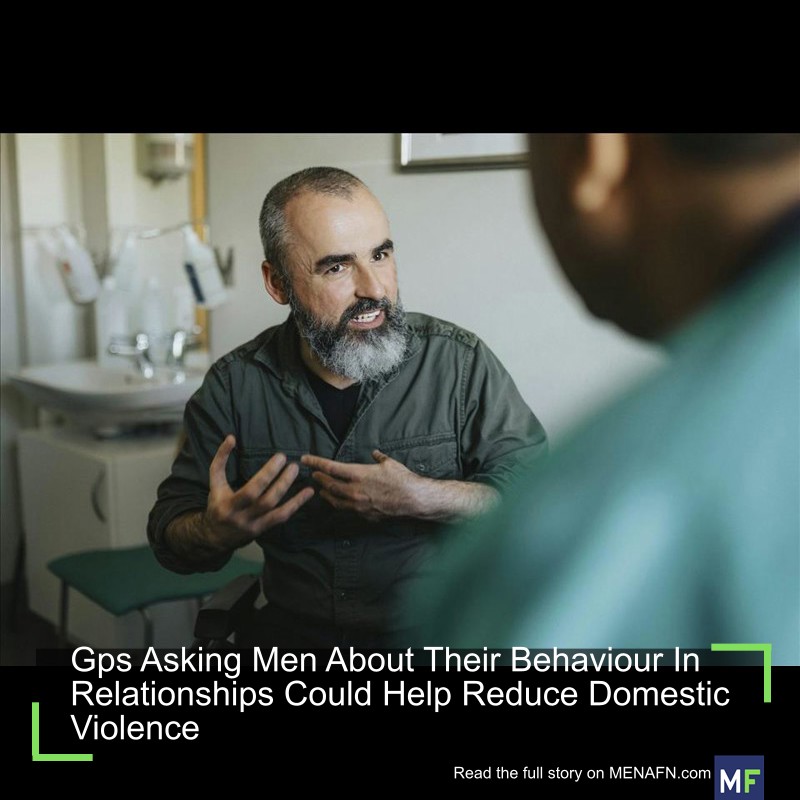
Gps Asking Men About Their Behaviour In Relationships Could Help Reduce Domestic Violence
The report, which I co-authored, estimates 120,000 men each year will start to use abuse and violence against their partner for the first time.
So we need to engage these men before they start using abuse and violence. Our work with GPs suggests they can engage men early to prevent harm to families.
Why use GPs?Men who use domestic violence frequently visit health services and need help to address harmful behaviours in relationships. These men are more likely to have increased alcohol use, substance abuse and mental health issues.
Our new report found men with depressive symptoms, especially those who were severely depressed or suicidal, were at greater risk of starting to use abuse and violence.
We know from experience with men's behaviour change programs that men who volunteer for these programs are more likely to sustain change than men ordered to undertake them by the court.
GPs can apply this knowledge by identifying men who have internal motivations for change , or who want to be a“better person”.
This echoes a new community campaign that asks men“What kind of man do you want to be?”
GPs and mental health practitioners have great potential to build conversations around behaviours in men's relationships. However, discussions need to be tailored after learning more about the man's identity and needs.
How can GPs ask men about potential violence?GPs can begin by signposting:
They then move to more specific questions:
The next step is gauging insight about their behaviour:
The final step is offering support:
How are men likely to respond?My research team explored men's perceptions of seeking help for an unhealthy relationship and how they could be supported to recognise their behaviour and undertake change.
Men we talked to said:
They then wanted a response that motivates them:
To“plant the seed”, a trained and equipped GP could prepare and motivate men to accept a referral and address other needs, such as parenting issues and alcohol and drug use.
Difficulties for GPsMany men who use violence never engage with intensive, face-to-face or online behaviour change programs. So GPs can play an important role in offering ongoing support and encouragement for men who use abuse and violence to change their behaviour.
Some of the issues GPs have raised about doing this work include:
Men find websites and apps usefulMen are very open to websites or apps that provide a safe, private place for them to reflect on their harmful behaviours and consequences.
My research team has developed a primary care response model called I-engage , which includes GPs engaging men and offering them an online tool to encourage men to seek help.
We also developed the healthy relationship website, Better Man , from discussions with men.
The men we interviewed suggested developing resources that:
“don't jump down my throat straight away” “help me realise what I'm becoming” “give hope for seeing a change in my future”“make it simple and accessible”.
The resulting website increases men's early engagement with help-seeking . Motivational techniques encourage men's awareness and self-reflection, avoiding stigma and shame.
The program includes four modules:
-
better relationships encourages a man to reflect on behaviours in his relationship
better values explores how men's behaviours align with their values better communication looks at how a man's communication style may differ with a partner compared to others
finally, take better action reinforces help seeking, provides resources for parenting, alcohol and drug use, and mental health.
Early engagement through the health system requires GPs to be supported, trained and resourced to identify and respond to all members of a family.
We have been calling for funding of a long consultation for a Family Safety Plan through a Medicare item number for a decade .
The health system can engage men using behaviours in their relationships that cause harm to their partners and children.
As one man who we worked with says:

Legal Disclaimer:
MENAFN provides the
information “as is” without warranty of any kind. We do not accept
any responsibility or liability for the accuracy, content, images,
videos, licenses, completeness, legality, or reliability of the information
contained in this article. If you have any complaints or copyright
issues related to this article, kindly contact the provider above.

















Comments
No comment